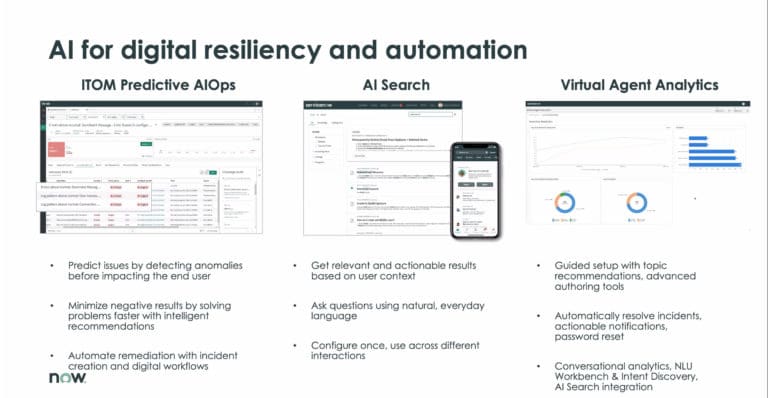ServiceNow is making a new major version of its platform available today. Each version is named after a city; this time it’s Quebec’s turn. Once again ServiceNow has presented several major features.
Quebec is the successor to ServiceNow Paris. In the new version, ServiceNow focuses primarily on developing low-code applications, and several new AI features added to the platform.
Related: Nobody knows what ServiceNow does, or what it can do for you
ServiceNow fully embraces low-code
For those who work with ServiceNow or follow them closely, this won’t sound very new. ServiceNow has been offering the ability to design workflows and make business processes more efficient through low-code for some time now. What is new is the ability to build entire applications using low-code with the new App Engine Studio.
Although these are complete web or mobile-based applications, the applications are not completely stand-alone. The applications are always linked to the online ServiceNow platform. The ServiceNow platform is at the heart of the applications. With this, ServiceNow is opting for an approach like Salesforce with Lightning rather than the Mendix strategy.
For more information on application development with ServiceNow, please see our in-depth article: ServiceNow fully enters low-code market with App Engine Studio.
ServiceNow AI solutions
Besides the introduction of App Engine Studio and all the templates and building blocks you can use to develop applications, there was also a lot of news about AI. ServiceNow has made some acquisitions in recent times, in the form of Loom Systems and Attivio. Most of these companies’ technology is now also in Quebec.
So several new AI solutions should make the life of a ServiceNow customer easier. In IT Operations Management, a predictive AI has now been applied that can recognise problems even before they become problems. The small anomalies in systems and applications that lead to a critical problem or outage can thereby be resolved preventively.
Furthermore, the possibilities for a virtual agent have been expanded. This agent can now more actively use data and a knowledge base to make recommendations and resolve incidents. The conversational skills of the agent have also been greatly improved.
One of the most important AI solutions that ServiceNow was perhaps most enthusiastic about is AI Search. It is better in processing so-called “natural language search” so that customised answers can be displayed.
The AI Search can, as it were, develop its own query to search the database for data that meets certain conditions. For example: “Show all projects that James has worked on in the last three months but aren’t updated for 30 days.” That’s a precise search question that most search solutions don’t know how to handle. AI Search should be able to deal with this as long as the projects’ data are stored on the ServiceNow platform.
For more information about the Quebec release, you can of course visit ServiceNow.
Tip: ServiceNow fully enters low-code market with App Engine Studio
